
A supermarket is a self-service shop offering a wide variety of food, beverages and household products, organized into sections. This kind of store is larger and has a wider selection than earlier grocery stores, but is smaller and more limited in the range of merchandise than a hypermarket or big-box market. In everyday United States usage, however, "grocery store" is often used to mean "supermarket".
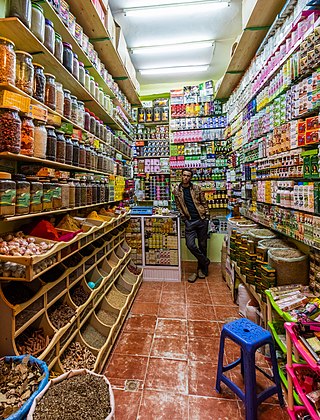
Retail is the sale of goods and services to consumers, in contrast to wholesaling, which is sale to business or institutional customers. A retailer purchases goods in large quantities from manufacturers, directly or through a wholesaler, and then sells in smaller quantities to consumers for a profit. Retailers are the final link in the supply chain from producers to consumers.

A grocery store (AE), grocery shop (BE) or simply grocery is a foodservice retail store that primarily retails a general range of food products, which may be fresh or packaged. In everyday U.S. usage, however, "grocery store" is a synonym for supermarket, and is not used to refer to other types of stores that sell groceries. In the UK, shops that sell food are distinguished as grocers or grocery shops
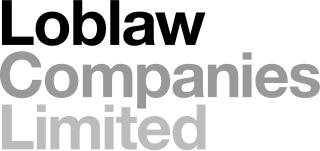
Loblaw Companies Limited is a Canadian retailer encompassing corporate and franchise supermarkets operating under 22 regional and market-segment banners, as well as pharmacies, banking and apparel. Loblaw operates a private label program that includes grocery and household items, clothing, baby products, pharmaceuticals, cellular phones, general merchandise and financial services. Loblaw is the largest Canadian food retailer, and its brands include President's Choice, No Name and Joe Fresh. It is controlled by George Weston Limited, a holding company controlled by the Weston family; Galen G. Weston is the chair of the Loblaw board of directors, as well as chair of the board of directors and CEO of Canada-based holding company George Weston.

Best Buy Co., Inc. is an American multinational consumer electronics retailer headquartered in Richfield, Minnesota. Originally founded by Richard M. Schulze and James Wheeler in 1966 as an audio specialty store called Sound of Music, it was rebranded under its current name with an emphasis on consumer electronics in 1983.

The Kroger Company, or simply Kroger, is an American retail company that operates supermarkets and multi-department stores throughout the United States.

Save A Lot Food Stores Ltd. is an American discount supermarket chain store headquartered in St. Ann, Missouri, in Greater St. Louis. It has about 900 independently owned and operated stores across 32 states in the United States with over $4 billion in annual sales.
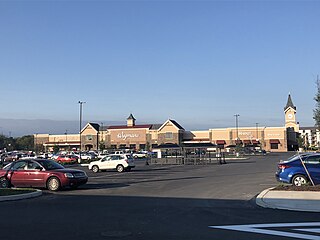
Wegmans Food Markets, Inc. is a privately held American supermarket chain. It is headquartered in Gates, New York, and was founded on January 30, 1916, in Rochester, New York.
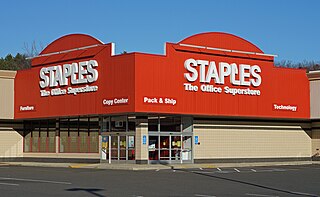
Staples Inc. is an American office supply retail company headquartered in Framingham, Massachusetts.
SuperValu, Inc., was an American wholesaler and retailer of grocery products. The company, formerly headquartered in the Minneapolis suburb of Eden Prairie, Minnesota, had been in business since 1926. It is a wholly owned subsidiary of United Natural Foods (UNFI).
Forever 21 is a multinational fast-fashion retailer headquartered in Los Angeles, California, United States. Originally founded as the store Fashion 21 in Highland Park, Los Angeles in 1984, it is currently operated by Authentic Brands Group and Simon Property Group, with about 540 outlets.

Lucky Stores is an American supermarket chain founded in San Leandro, California, in 1935. Lucky is currently operated by Albertsons in Utah and Save Mart Supermarkets in Northern California.
K·B Toys was an American chain of mall-based retail toy stores. The company was founded in 1922 as Kaufman Brothers, a wholesale candy store. The company opened a wholesale toy store in 1946, and ended its candy wholesales two years later to emphasize its toy products. Retail sales began during the 1970s, using the name Kay-Bee Toy & Hobby.

Wild Oats Marketplace is a producer of natural and organic food distributed through partnerships in the United States.

C&S Wholesale Grocers is a national wholesale grocery supply company in the United States, based in Keene, New Hampshire. In 2021 it was the eighth-largest privately held company in the United States, as listed by Forbes. C&S operates and supports corporate grocery stores and services independent franchisees under a chain-style model throughout the Midwest, South and Northeast. C&S owns the Piggly Wiggly grocery brand, which is independently franchised to store operators, the Grand Union supermarkets brand, as well as several private label brands, including Best Yet.
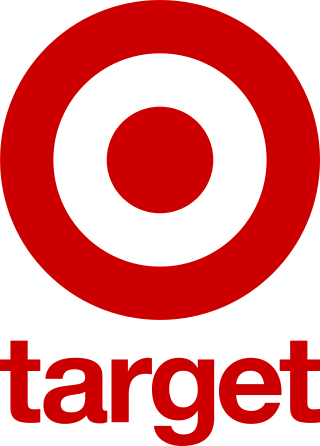
Target Corporation is an American retail corporation that operates a chain of discount department stores and hypermarkets, headquartered in Minneapolis, Minnesota. It is the seventh-largest retailer in the United States, and a component of the S&P 500 Index. The company is one of the largest American-owned private employers in the United States.

Valassis Communications, Inc. is a Livonia, Michigan-based company that provides media and marketing services in the United States, Europe, Mexico, and Canada. It is one of the largest coupon distributors/processors in the world.
News America Marketing, often referred to as just News America, was a marketing business previously owned by News Corp. It publishes SmartSource Magazine, a weekly consumer-branded newspaper insert offering advertising and coupon promotions, delivered in over 1,600 newspapers in the U.S. and is one of three companies in the United States that control almost all the in-store ads and grocery coupons in the United States.
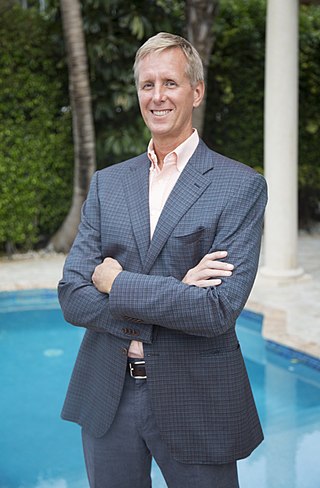
Kurt Jetta is a consumer researcher who studies data about multinational corporations through his firm, TABS Analytics, which is based in Shelton, Connecticut. The corporations Jetta has analyzed include Amazon, Family Dollar, Dollar Tree, Walmart, Apple. In addition, Jetta has also studied the organic food industry, the vitamin industry, and the online grocery industry. Other investigations led by Jetta include sociological research that pertains to the purchasing habits of various ethnic groups. In the area of trade promotion, Jetta has developed an alternative methodology to current industry baseline models. Jetta also analyzes rewards programs. He was a 2017 Republican candidate in Florida’s 21st Congressional District.
The retail format influences the consumer's store choice and addresses the consumer's expectations. At its most basic level, a retail format is a simple marketplace, that is; a location where goods and services are exchanged. In some parts of the world, the retail sector is still dominated by small family-run stores, but large retail chains are increasingly dominating the sector, because they can exert considerable buying power and pass on the savings in the form of lower prices. Many of these large retail chains also produce their own private labels which compete alongside manufacturer brands. Considerable consolidation of retail stores has changed the retail landscape, transferring power away from wholesalers and into the hands of the large retail chains.















